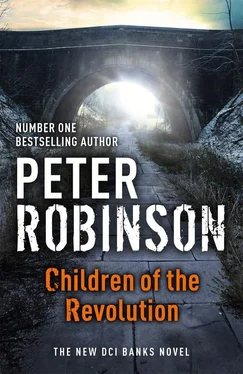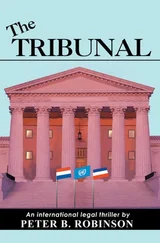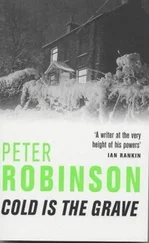‘What exactly are you trying to say?’
‘It’s simple, really.’ Gervaise spread her hands in a gesture of openness. ‘Nature abhors a vacuum. Since I was made chief superintendent, there’s been a vacuum. It needs to be filled. Homicide and Major Crimes really needs a detective superintendent to run it. I can’t think of a better person than you for the job.’ Gervaise had recently been promoted, and had also taken on the role of area commander for the Eastvale Local Policing Area.
‘ Detective superintendent ! Hang on. Wait a minute. You flatter me, but—’
‘It’s not flattery. Think about it, Alan. That’s all I ask. Yes, there’ll be more paperwork, more responsibility, more meetings, more crime stats and budgets to fret over, more of the sort of stuff you hate. And you’re going to have to tread a bit more carefully, avoid stepping on too many toes. But on the other hand, there’ll be more money and more holidays, and nobody’s going to stop you working the way you do, even if it means getting your hands dirty now and then. This wouldn’t be a move designed to stop you from doing your job the way you do it best. Some very high-up people have spent a lot of time discussing this.’
‘I thought my ears were burning a lot lately. You’re saying I would still be able to handle cases as I see fit?’
‘Within reason, same as always. If you mean can you get out there and work in the field, then the answer’s “yes”. It’ll just mean more unpaid overtime catching up with budgeting and reports and the rest of the paperwork.’
Banks thought for a moment. He had never been greedy, but more money meant more CDs and DVDs, maybe even a better sound system, and a good turntable like Miller’s to play the old vinyl he had recently brought up from his parents’ house in Peterborough. More money meant getting central heating installed in the cottage, maybe even a lick of paint here and there. More holidays would mean the occasional bargain weekend in Paris, Rome or Barcelona. But he knew better than to get carried away with himself. Nothing came without a price tag. He had a vision of himself so consumed by paperwork and budget meetings that he simply had no time left to get out and do the job he was best at.
‘What do you think?’ Gervaise asked.
‘I honestly don’t know what to say.’
Gervaise stood up and leaned forward, resting her palms flat on the desk. ‘You don’t have to make up your mind right at this very moment. Give it a few days. Remember, though, that as a superintendent, you wouldn’t have to retire until sixty-five.’
‘I’ll think about it, I promise,’ said Banks.
‘Good man,’ beamed Gervaise. ‘I knew you would. Let’s give it until this Miller case is settled and take it from there, shall we? By then, with any luck, you’ll have yet another feather in your cap. If you keep your nose clean, that is.’
Banks put his espresso cup back in its saucer and stood up to leave. ‘Whatever you say, ma’am.’
As usual these days, it was dark by late afternoon. As there were no other developments, and Winsome and the CSIs were still at the scene, Banks took the file Gerry Masterson had prepared on Gavin Miller home with him shortly before six o’clock and picked up some fish and chips from Helmthorpe High Street on his way. He hung up his raincoat on the rack by the door and carried his briefcase and dinner down the hall to the kitchen, where he made a pot of tea and sat down to eat and watch the evening news on the TV above the breakfast nook. It was the usual depressing mix of weather, politics and financial doom.
After he had put the dishes in the dishwasher — in a few days he would have enough to make it worthwhile running the damn thing — he poured himself a glass of Layers, an Aussie red blend he had come to enjoy lately, then he went into the entertainment room to select the music.
As he searched through his collection, he found himself drawn to the Grateful Dead. He hadn’t played any of their CDs in a long time. He had listened to the Dead a lot more when he was younger, and had even seen them live once at the Empire Pool, Wembley, in 1972. He remembered being impressed by Jerry Garcia’s guitar playing. More recently, he had been enjoying Norma Waterson’s version of ‘Black Muddy River’. No doubt their music would make an appropriate soundtrack for his reading. He didn’t have much to choose from, as it turned out, so he picked American Beauty .
Banks liked the sound of rain on the conservatory roof, so he decided he would sit out there to read over Gerry Masterson’s preliminary notes on Gavin Miller. She had been most embarrassed and apologetic that she had so little to show him when he had dropped by the squad room to see her. The whole business was going far too slowly, she said, and the notes she had were very sketchy and rough. Usually, she would have much more information by now. Banks told her not to worry and to stick at it.
He took his wine and briefcase through and settled back in his favourite wicker chair. With the reading light on, he couldn’t see a thing in the darkness beyond the windows except his own reflection and that of the spines of the books on the shelves behind him. The rain was softer now, a gentle hiss rather than a heavy drumming. He remembered reading, or seeing in a film somewhere, that W.C. Fields couldn’t sleep unless it was raining, and that he lay dying for some time, until the rain started. Then he died. Banks thought he might like to die to the sound of rain, not in the icy shackles of winter or the bright warmth of a summer’s day, or with the coloured autumn leaves drifting down, but in spring, perhaps, an April shower falling on the glass roof and windows of his conservatory. It wasn’t a morbid thought, but quite a comforting one, as was the sound. He sipped some wine and, with ‘Box of Rain’ playing softly in the background, began to read the few pages of the hastily written preliminary notes that DC Masterson had been kind enough to photocopy for him to take home.
DC Masterson’s account was very bare bones, though it covered a lot of ground, Banks noticed, and as he read, his imagination filled in some of the blanks. Gavin Miller had been born near Banbury, Oxfordshire, on 29 November 1953, almost sixty years ago. His father had been a teacher at a local comprehensive school, which Miller had attended, and his mother a housewife. Miller was an only child and grew up in a cottage at the end of a long leafy lane on the edge of town, with no close neighbours.
Miller had shown some academic promise at school, though he didn’t quite get the qualifications necessary for Oxford or Cambridge. He did well in his A-levels, however, and ended up reading English at the University of Essex, which he attended from 1971 to 1974, leaving with a second-class honours degree. After a period spent working to save up as much money as he could, Miller disappeared to Canada in 1977 to study film and literature at Simon Fraser University near Vancouver. From what Gerry Masterson could work out, Miller seemed to have remained over there for the next six years. That would explain some of the photos of cityscapes and mountain landscapes they had found in Miller’s drawer, Banks thought. He had seen similar images of Canada before.
Gerry admitted that she had lost track of his movements during the four-year period after he graduated from Simon Fraser from 1979 to 1983 — the ‘lost years’ — and she needed to contact consulates and immigration sources, registrars and administrative assistants. It was a time-consuming job, even if you were looking for fresh information. Miller turned up again at home in Banbury in 1983. He would have been pushing thirty by then, Banks calculated, and this was not an era when the children stayed at home as long as they do these days.
Читать дальше












